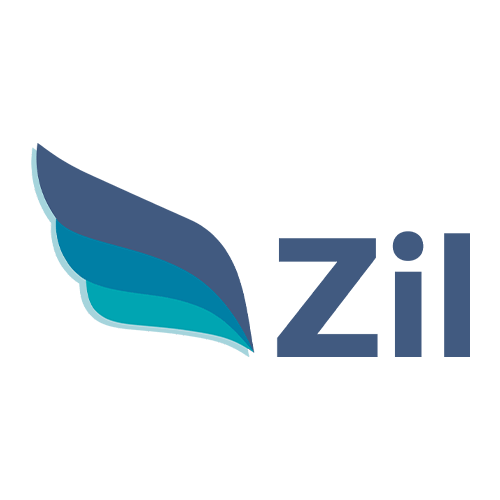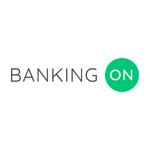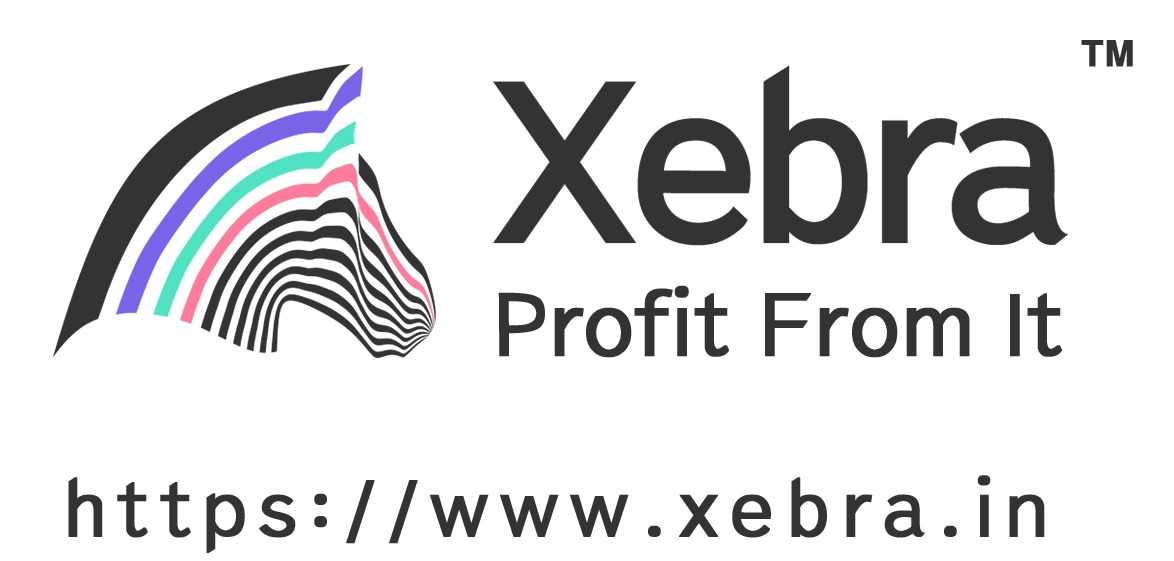Yes, most internet banking software is accessible from numerous devices and platforms. This is possible because internet banking software is typically web-based or includes a mobile app. Your online banking account can be accessed from any device with an internet connection, including a computer, smartphone, or tablet. Furthermore, most internet banking software is compatible with a variety of operating systems including Windows, iOS, and Android.
List of 20 Best Online Banking Software
Zil is a payment solution for freelancers, startups, and businesses. With our platform, manage all your payment needs in one place, from ACH payments to money transactions and international wire transfers. Simplify your financial management with Zil...Read More Zil
Bottomline is the leading electronic banking platform known for its exceptional user interface and experience. It is highly preferred by financial institutions for its ability to engage customers and provide unmatched customer service. Banks can util...Read More Bottomline
DCI Mobile & Online Banking offers a user-friendly and secure digital banking experience for community banks. With a comprehensive range of features, customers can easily manage their finances from anywhere and at any time. This cutting-edge technolo...Read More DCI Mobile & Online Banking
Kony is a internet banking platform tailored for banks and Credit Unions. With a full suite of modules, Kony transforms the digital banking landscape. Its online support and extensive documentation ensure users have all they need to maximize their ba...Read More Kony
Sopra Steria, an esteemed European software company, employs 56,000 employees across 30 countries. Their services include consulting, digital solutions, and software development. Recognized as a frontrunner in Artificial Intelligence technology, they...Read More Sopra Steria
Capital Banking Solutions is a software system designed for both retail and corporate banks. Featuring robust retail banking functionalities including counter operations, checkbook organization, and fund transfers, this system streamlines check clear...Read More Capital Banking
Temenos is a versatile internet banking software that is known for its flexibility in meeting evolving demands. It is a preferred choice among financial institutions and wealth managers for its adaptability and comprehensive solutions. With a strong...Read More Temenos
NYMBUS, a digital solution that empowers financial institutions to create their own digital bank. With its advanced features, NYMBUS enables easy customer acquisition and business growth. It also offers an integrated CRM solution to enhance customer...Read More Nymbus
EBANQ is an advanced mobile banking software designed for payment institutions, electronic money institutions, banks, credit unions, Trust Companies, Forex Companies, and client fund managing companies. It is compatible with all major browsers for ea...Read More EBANQ
CornicheNet, the premier personal banking solution for your valued clients. Our advanced software streamlines processes such as account opening, contact updates, and statement viewing for your customers. Robust security features, including encrypted...Read More CornicheNet
eBank.net, a software platform revolutionizing banking operations. This comprehensive solution automates menial tasks, simplifies processes, and boosts efficiency. With reduced manual work, financial institutions can focus on providing top-quality cu...Read More eBank.net
Apex Banking solution for optimizing financial operations. Our comprehensive platform effortlessly integrates retail banking, portfolio management, and multiple account types, offering effective and cloud-based services. Elevate client interactions a...Read More Apex Banking
FRONTeO e-Banking is a platform that streamlines complex banking processes to enhance user efficiency. With a user-friendly interface and robust features, this software simplifies financial management for both individuals and businesses. Its unique d...Read More FRONTeO e-Banking
BankingON - the leading online banking solution designed specifically for Community Banks & Credit Unions. With its user-friendly interface, this top-of-the-line software provides a seamless banking experience. Experience the benefits of complete tra...Read More BankingON
Revolut is a internet banking platform that caters to the unique financial requirements of businesses, regardless of their size. Offering cutting-edge features like top-notch security protocols, insightful data analysis, and smooth internal transacti...Read More Revolut
Xebra: B2B MSME Business Suite is a SaaS ERP solution designed specifically for startup and MSME business needs. Experience unparalleled control and visibility over your business operations with a platform that includes essential features like Invoic...Read More Xebra: B2B MSME Business Suite
TurnKey Lender is a leading digital lending management platform powered by AI. Perfect for SMEs, banks, credit unions, finance companies, non-profits, and governments, our award-winning SaaS solution provides a comprehensive suite of lending tools fo...Read More TurnKey Lender
InfrasoftTech is an advanced banking software leveraging AI technology to integrate seamlessly with existing legacy systems and provide a cohesive customer experience across multiple channels. By accurately capturing and analyzing customer behavior,...Read More InfrasoftTech
Macrobank by Advapay is a Digital Core Banking solution designed to optimize your banking operations and elevate the digital experience for your customers. This all-in-one platform comes equipped with a robust engine, customizable web and mobile inte...Read More Advapay
MULTIVERSA IFP, a online banking solution perfect for Enterprises, SMEs, and Startups. With a user-friendly interface for web and Android, this robust software offers a variety of features such as cash management, messaging, electronic statements, se...Read More MULTIVERSA IFP
Learn More About Online Banking Software
- What Is Online Banking Software?
- What Are The Recent Trends In Online Banking Software?
- Benefits Of Using Online Banking Software
- Important Factors To Consider While Purchasing Online Banking Software?
- What Are The Key Features To Look For In Online Banking Software?
- Why Do Businesses Need Online Banking Software?
- How Much Time Is Required To Implement Online Banking Software?
- What Is The Level Of Customization Available In Online Banking Software?
- Which Industries Can Benefit The Most From Online Banking Software?
- Conclusion
What Is Online Banking Software?
Online banking software is a digital platform that enables consumers to access and manage their bank accounts over the Internet. With the advancement of technology, traditional banking practices have been supplanted by the convenience and effectiveness of online banking. Online banking software allows users to execute a variety of banking operations, including checking account balances, moving payments, paying bills, and more, from the comfort of their own home or while on the go. One of the most significant advantages of online banking software is its 24/7 availability.
Users can access their accounts and execute transactions at any time and from any location by just clicking a button. This eliminates the need to go to a physical bank branch, saving time and effort for busy people. Furthermore, online banking software provides a variety of features and tools to help you manage your funds more easily and efficiently. These include budgeting and cost monitoring tools, e-statements, and configurable account balance and transaction alerts.
Security is a significant consideration for online banking software companies. They utilize powerful encryption techniques to keep personal and financial information safe from hackers and cyber dangers. Furthermore, users must use strong passwords and complete multi-factor authentication before being permitted access to their accounts, assuring the utmost level of security for their transactions.
When shopping for online banking software, make sure it is compatible with a variety of platforms, including PCs, laptops, and mobile devices. A user-friendly design and navigation are also important components in making the banking experience smooth and hassle-free. Additionally, it is critical to select software that provides dependable and timely customer service in the event of any technical issues or complaints.
What Are The Recent Trends In Online Banking Software?
In recent years, both consumers and businesses have increased their usage of internet banking software. This growth in popularity can be ascribed to a variety of factors, including increased availability of mobile devices, technological developments, and a desire for more convenient and efficient financial services. As a buyer seeking for the best online banking software, it is critical to stay current on the latest trends in this ever-changing market.
Before making a purchase, consider the following current trends in online banking software:
1. Mobile-First Approach: With the majority of people now relying on smartphones for daily tasks, it's no wonder that online banking software is adopting a mobile-first strategy. This means that software companies are putting greater emphasis on creating mobile-friendly and user-friendly interfaces to meet the increased demand for on-the-go banking services.
2. Integration With Third-Party Services: Online banking software is no longer restricted to basic banking operations. Software suppliers are increasingly integrating their platforms with third-party services including budgeting tools, investment management, and payment gateways. This lets consumers to handle all of their financial needs in one place, resulting in a more simplified and efficient banking experience.
3. Improved Security Features: As online banking grows more popular, the significance of security cannot be emphasized. In response, software companies are constantly improving their security procedures to secure user data and transactions. This includes the use of biometric authentication, advanced encryption methods, and fraud detection algorithms.
4. Artificial Intelligence (AI) Integration: The usage of AI in online banking software is growing, with features like chatbots and virtual assistants becoming more popular. These AI-powered solutions may help customers with their banking needs and make personalized recommendations, making the process more convenient and efficient.
5. Personalization And Customization: In a competitive industry, online banking software vendors strive to differentiate themselves by delivering personalized and configurable features. This includes customized notifications, personalized dashboards, and the opportunity to configure individual preferences for each user.
Benefits Of Using Online Banking Software
Online banking software is an essential tool for both consumers and organizations in today's digital world. It provides several benefits and features that simplify money management and enhance the overall banking experience.
In this buyer's guide, we'll go over the primary advantages of using online banking software so you can make an informed decision.
1. Convenient And Time-Saving: One of the primary benefits of using online banking software is the convenience it provides. With a few clicks, you may do a variety of financial transactions, including checking account balances, moving funds, paying bills, and more, at any time and from any location. This eliminates the need to physically visit a bank branch, which saves you time and effort.
2. Improved Security: Most online banking software has extensive security features to safeguard consumers from fraudulent actions. These include multi-factor authentication, encryption, and real-time transaction monitoring. You can also set up specific security alerts to receive notifications of any unusual activity on your account, giving you peace of mind.
3. Real-Time Account Access: You no longer have to wait for paper bank statements or visit a branch to get account updates. Online banking software allows you to view account information in real time, such as balances, transaction history, and pending transactions. This allows you to more effectively manage your finances and track your expenditure in real time.
4. Cost-Effective: Using online banking software can help you save money in the long term. It eliminates the need for paper statements, cheques, and postage, which can accumulate over time. Furthermore, online banking frequently has reduced costs and better interest rates, making it an affordable option for managing your accounts.
5. Integration With Financial Management Applications: Many online banking software platforms integrate with well-known financial management applications like Quicken and Mint. This provides you with a thorough picture of your financial situation and makes it simple to manage your spending and budgeting habits.
6. 24/7 Customer Support: Most online banking software companies give 24-hour customer support, guaranteeing that you may obtain help whenever you need it. This is especially useful in the event of any problems with your account or transactions.
Important Factors To Consider While Purchasing Online Banking Software?
When it comes to selecting online banking software for business or personal use, there are several important elements to consider in order to make an informed decision.
Here are the main elements to consider while selecting online banking software:
1. Security: Keeping your financial information safe and secure is a primary priority in online banking. As a result, it is critical to select software that meets the most recent industry requirements for encryption and data security. Look for features like two-factor authentication, secure socket layer (SSL) encryption, and firewalls to guarantee that your online banking transactions are as secure as possible.
2. User-Friendly Interface: The software's interface should be straightforward and simple to navigate and utilize. This is especially critical if you're new to internet banking or have low technological skills. A simple and well-designed interface can save you time and frustration when managing your money.
3. Compatibility: Ensure that the online banking software works with all of your devices, including desktops, laptops, tablets, and mobile phones. This ensures that you may access your account and conduct transactions from any device and at any time.
4. Features And Functions: Different online banking software provide a variety of features and functions. As a result, it is critical to analyze your individual requirements and select software that includes the functionality you need. For example, if you need to set up automatic payments or send/receive foreign transfers, ensure that the software provides these features.
5. Customer Assistance: Customer service and technical assistance are critical components of online banking software. Make sure the software vendor provides dependable and accessible customer assistance to help you with any problems or inquiries you may have.
6. Cost: Consider the software's price, including any ongoing fees or subscription payments. You want to make sure that the program is within your budget and provides value for money.
7. Speed And Reliability: Slow or frequent downtime in online banking software can create major inconvenience and delays in handling your finances. As a result, it is critical to select software that is both fast and dependable, allowing you to access and conduct transactions in a timely manner. By taking these crucial elements into account when selecting online banking software, you can ensure that you select the finest option for your unique requirements and enjoy a smooth online banking experience.
What Are The Key Features To Look For In Online Banking Software?
When selecting on the best online banking software for your business or personal needs, you should examine a variety of features that will improve your banking experience.
Here are some important things to look for when buying online banking software:
1. User-Friendly Interface: The software's interface must be simple to use and understand. A clean and easy-to-use dashboard will make your online banking experience more enjoyable.
2. Security Measures: Since online banking contains sensitive financial information, security must be prioritized. Look for features such as two-factor authentication, end-to-end encryption, and multi-factor authentication to protect your account's security.
3. Multiple Account Management: If you have several bank accounts, it will be useful to have software that allows you to manage them all from one spot. Look for multi-account functionality and quick account switching.
4. Bill Pay And Transfer Options: The program should provide the ability to pay bills and transfer monies to other accounts smoothly. Look for software that accepts numerous payment ways and provides speedy, safe transactions.
5. Budgeting And Tracking Capabilities: Some online banking software includes budgeting and tracking capabilities to help you better track your spending and manage your finances. Both individuals and corporations can benefit greatly from these advantages.
6. Mobile App Compatibility: With the rise of mobile banking, it is critical that the program has a compatible mobile app. This allows you to access your account and complete transactions while on the go, making your banking experience more convenient.
7. Customer Assistance: If there are any problems or questions, a dependable customer assistance system can make a big difference. Look for software that provides 24/7 customer assistance by phone, email, and live chat.
8. Integration With Accounting Software: Businesses might benefit from online banking software that interfaces with popular accounting software such as QuickBooks or Xero. This will make it easy to keep track of your finances and transactions.
9. Bank Compatibility: Make sure the online banking software you choose works with a variety of banks and financial institutions. This gives you the ability to utilize the software with your favorite bank.
10. Customisation Options: Each individual or business has unique banking requirements. Look for software that allows you to customize your dashboard and settings based on your preferences.
Why Do Businesses Need Online Banking Software?
Online banking software is an essential tool for businesses in today's digital age, providing a convenient and secure means of conducting financial transactions. As more businesses transition to online operations, the demand for efficient and dependable financial solutions grows.
We will look at the different reasons why businesses require internet banking software and how it may help your organization.
1. Streamlining Financial Operations: One of the primary reasons why businesses want internet banking software is to streamline their financial operations. Traditional banking techniques can make account management and transaction processing time-consuming and error-prone. Online banking software automates these activities, enabling firms to manage their funds more efficiently and correctly.
2. Time-Saving And Convenient: Compared to traditional banking techniques, online banking software is more convenient. It enables businesses to access their accounts, conduct transactions, and examine financial information from anywhere and at any time. This saves a tremendous amount of time and effort, particularly for firms that operate globally or use remote staff.
3. Improved Security: With the proliferation of cyber threats, security is a critical priority for businesses of all sizes. Multi-factor authentication, data encryption, and secure user access are among the sophisticated security features included in online banking software. It protects critical financial information while lowering the risk of fraud and other cybercrimes.
4. Real-Time Tracking And Reporting: Another significant advantage of online banking software is real-time tracking and reporting. Businesses may track their transactions, cash flow, and financial performance in real time, offering useful information for decision-making. This function is especially useful for businesses that deal with a significant volume of transactions.
5. Cost-Effective Solution: Online banking software reduces the need for human financial operations, which lowers the costs associated with traditional banking. It also eliminates the need for in-person bank visits, saving businesses time and money. This makes it an economical solution for handling financial activities.
6. Integration With Accounting Software: Online banking software provides seamless integration for firms that utilize accounting software, increasing the efficiency of financial management. This interface enables automatic data syncing, which reduces the chance of human error and saves time on manual data entering.
How Much Time Is Required To Implement Online Banking Software?
The time it takes to install online banking software varies based on various aspects, including the size and complexity of your financial institution, the exact features and functionalities you need, and your team's preparedness and collaboration. However, on average, the implementation phase can take six months to a year. This timeframe covers the initial planning and assessment phase, during which you will review your current systems and processes, identify your goals and requirements, and choose the best software solution for your organization.
After selecting the program, there will be a period of setting it up and tweaking it to match your institution's specific requirements. The next step is testing and training, which entails confirming that the software works properly and teaching your personnel how to use it successfully and efficiently. This process can take many weeks or months, depending on the software's complexity and the size of your institution. The final phase is the actual go-live and transition to the new software, which usually takes a few weeks or a month.
During this period, you may discover some minor issues that need to be resolved, and your team may require additional assistance from the software vendor. It is crucial to remember that the timescale mentioned is only an estimate; the actual period may differ. To reduce delays and ensure a seamless implementation process, you must engage directly with your software vendor, have a dedicated implementation team, and understand your institution's demands. Furthermore, some software vendors give expedited implementation alternatives for faster deployment.
What Is The Level Of Customization Available In Online Banking Software?
Online banking software provides a variety of customization possibilities to meet the specific demands of a financial institution. The level of customization provided may differ based on the software and its vendor.
However, in general, internet banking software can be customized in a few crucial areas.
1. Branding And Visual Customization: The design of any banking software is crucial because it reflects the institution's brand image. Most online banking software allows you to personalize the interface using the bank's logo, color scheme, and design components. This delivers a consistent branding experience for customers while also allowing banks to express their distinct identities.
2. User Roles And Permissions: Online banking software frequently serves a diverse spectrum of users, from clients to bank personnel. Banks can create specific user roles and permissions to enhance data protection and access control. This enables them to assign varying levels of access to different users based on their positions, responsibilities, and seniority.
3. Features And Functionality: Online banking software can be tailored to the needs of the bank and its customers, providing unique features and functionality. This could include features like online bill payments, fund transfers, loan management, and more. Banks might include or eliminate specific elements based on their target demographic and business needs.
4. Integration With Third-Party Applications: In addition to internet banking software, many banks utilize accounting software and credit score tracking systems. Customization options, such as API connectivity, can be useful. This enables seamless communication and data sharing across several platforms, resulting in a more comprehensive and efficient banking experience.
5. Reporting And Analytics: Every bank has different reporting and analytics needs, and online banking software may be tailored to match these needs. Banks can establish specific indicators and parameters to generate reports based on their business objectives and plans. They can also create custom dashboards to monitor performance indicators and obtain insight into customer behavior.
Which Industries Can Benefit The Most From Online Banking Software?
Online banking software has a number of advantages for firms in many industries. This new technology not only improves the banking experience for consumers, but it also simplifies financial processes for businesses.
The following industries can gain the most from deploying internet banking software:
1. Banking And Financial Services Business: The financial business stands to benefit the most from online banking software. With the growing need for digital banking solutions, banks and financial institutions can use online banking software to provide more convenient and secure services to their clients. This software can automate tasks including as account administration, transactions, and loan approvals, lowering manual errors and increasing productivity.
2. Retail And E-commerce Industry: As online shopping becomes more popular, retail and e-commerce enterprises are seeing an increase in demand for digital payment solutions. Online banking software enables these firms to receive customer payments securely and manage their accounts efficiently. It also includes capabilities such as real-time transaction monitoring, invoice management, and automatic reconciliation, making it an indispensable tool for the retail and e-commerce sectors.
3. Small And Medium Enterprises (SMEs): Small and medium-sized businesses sometimes have limited resources and staff, making it difficult to handle funds effectively. Online banking software helps SMEs save money by streamlining financial procedures including payroll, invoicing, and budgeting. SMEs can get greater financial control and make more informed company decisions with to features such as multi-user access and configurable dashboards.
4. Healthcare Business: The healthcare business handles sensitive and secret information, so security is a key issue. Online banking software includes advanced security features such as encryption and multi-factor authentication to protect patients' financial and personal information. It also enables healthcare facilities to manage payments, insurance claims, and vendor payments with ease.
5. Government And Public Sector: Because the government and public sector handle enormous sums of public cash, they require a dependable and secure financial management system. Online banking software provides real-time visibility into all financial transactions, allowing for more accurate monitoring and reporting. It also makes it easier for government organizations to collect taxes, pay vendors, and manage their budget.
Conclusion
After considering numerous online banking software solutions, it is evident that investing in a dependable and user-friendly platform will significantly improve your financial management experience. From safe transaction processing to complex budgeting capabilities, the appropriate online banking software can help you manage your accounts more easily and efficiently.
Finally, when selecting online banking software, evaluate the provider's features, security measures, and customer service. You should also consider your individual financial needs and select software that best meets them. You may locate the ideal online banking software that matches your needs and helps you achieve your financial objectives by conducting extensive research and evaluating several possibilities.
Online Banking Software FAQ's
Can Online Banking Software Be Accessed Across Multiple Devices And Platforms?
Is Online Banking Software Future-Proof And Adaptable To Emerging Technologies Like AI, Blockchain Or IoT?
Yes, Online Banking Software is intended to be future-proof and adaptable to new technologies like AI, blockchain, and IoT. To stay up with the ever-changing digital scene, software developers regularly update and improve the functionality of online banking software.
These improvements enable banks to give their customers with unique features and services, enhancing their online banking experience and security. With the integration of these technologies, online banking software will continue to improve and be relevant in the future.
Is There A Free Trial Offered To Assess Online Banking Software Before Committing?
Yes, most online banking software vendors provide free trials so that potential users can evaluate the features and functionalities before making a commitment. This allows them to test the software and assess whether it satisfies their specific needs and expectations. It is recommended that you use free trials before committing to any software to confirm it is a good fit for your organization.
Does Online Banking Software Offer Data Security Features And Meet Regulatory Compliance Standards?
Yes, credible online banking software solutions have strong data security measures to safeguard critical financial information. These features could include data encryption, secure login procedures, and fraud detection systems.
Furthermore, these software packages frequently fulfill regulatory compliance standards established by regulating organizations to ensure that client data is secure. This involves complying with legislation such as the General Data Protection Regulation (GDPR) and the Payment Card Industry Data Security Standard. With trustworthy online banking software, you can be confident that your information is secure.
Can Online Banking Software Integrate Seamlessly With Existing Tools And Platforms?
Yes, most internet banking software is designed to work easily with a wide range of existing tools and platforms. This makes it easier for users to manage all of their financial transactions in one spot. Accounting software, CRM systems, and payment gateways are some of the integration options available. Some online banking software even provides customized integration solutions to meet the specific requirements of businesses and financial institutions.






















